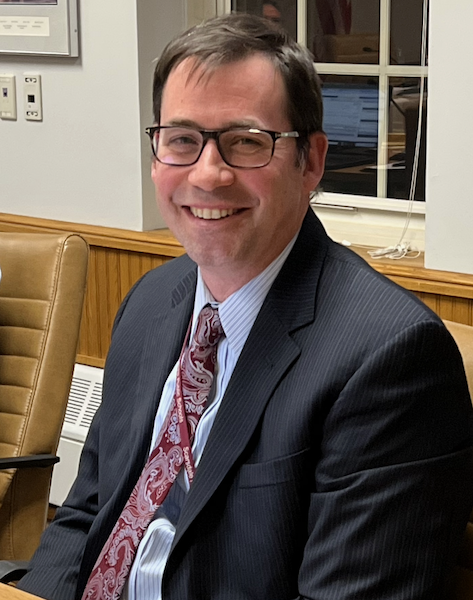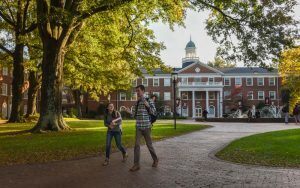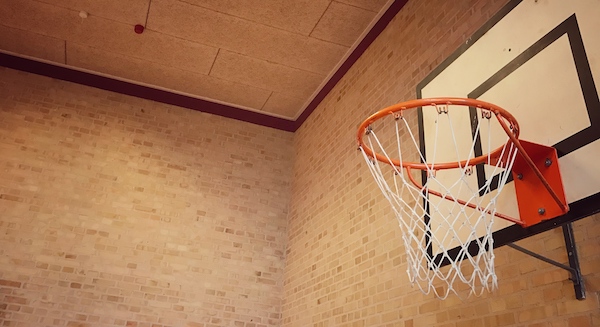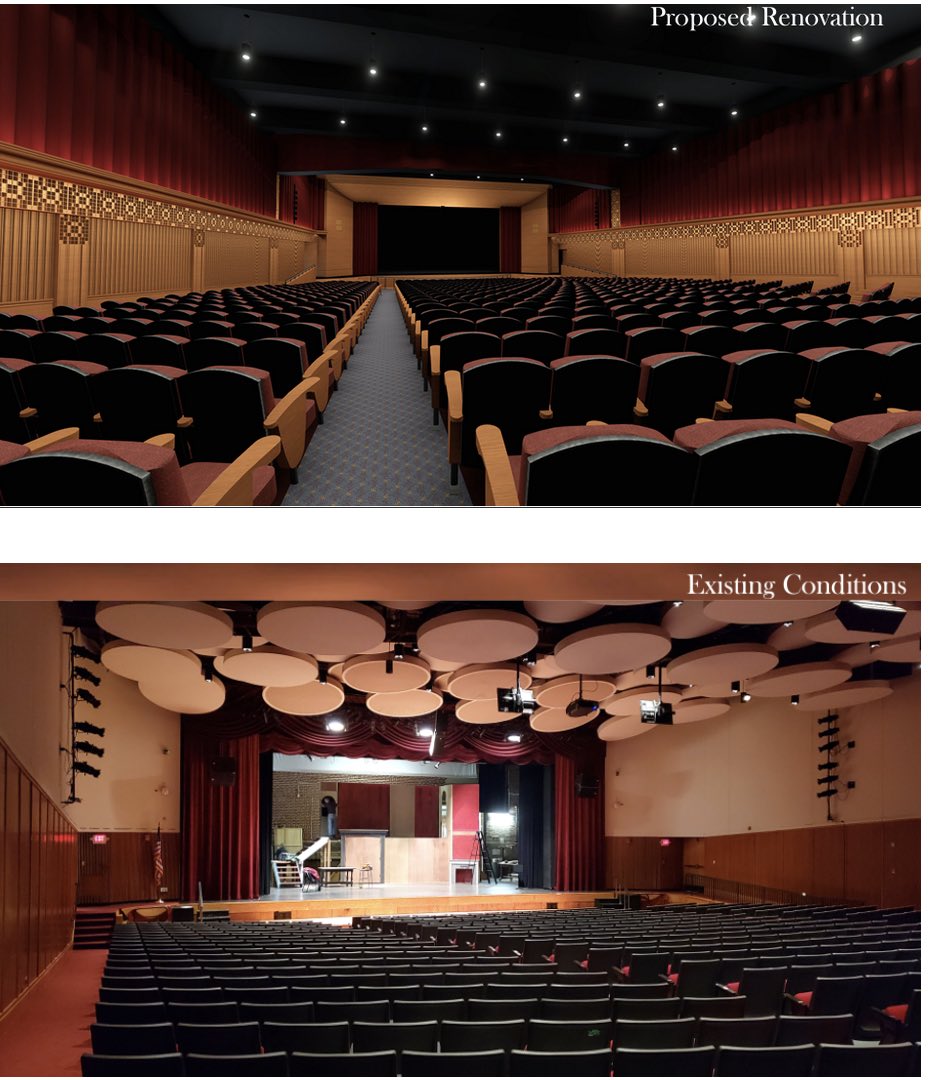Superintendent Says Accusations are Factually Baseless and Untrue
- Details
- Written by: Joanne Wallenstein
- Hits: 4082
 Scarsdale Superintendent Drew Patrick issued the following statement to the Scarsdale community on February 13, concerning the accusation of racial slurs at a Varsity Girls B Team game against East Ramapo on Feburary 10. He says below that an investigation has determined that the accusations are “factually baseless and untrue.” Also read a statement from Scarsdale parent Jason Paris who was in the stands at the game.
Scarsdale Superintendent Drew Patrick issued the following statement to the Scarsdale community on February 13, concerning the accusation of racial slurs at a Varsity Girls B Team game against East Ramapo on Feburary 10. He says below that an investigation has determined that the accusations are “factually baseless and untrue.” Also read a statement from Scarsdale parent Jason Paris who was in the stands at the game.
Dear Scarsdale Community,
Good evening- I hope you're in good spirits as you read this message. I am writing to provide clear and direct information related to last Saturday’s Girls Varsity B basketball game against East Ramapo. Unfortunately, recent media reports are painting an inaccurate picture of what transpired, so I would like our community to hear an account of the event from me, and an update on where things stand.
First, I want to extend my heartfelt appreciation to everyone involved in the recent Raiders for Research event. The collaboration between the athletic department, particularly the boys' and girls' basketball teams, and Scarsdale High School’s Breast Cancer Awareness Club, was instrumental in raising awareness and support for cancer research. Each of our basketball teams participated, with games spanning from 9 AM to nearly 9 PM. The event exceeded the fundraising target, raising $2,062 for the V Foundation. Congratulations to the players, coaches, and families that played a role in this great event.
Unfortunately, in the final moments of the 3:00 PM Varsity B Girls’ Basketball Game against East Ramapo, the opposing coach reported that his players were subjected to racially charged comments from a spectator or spectators. Our commitment to belonging and a safe, supportive environment for all students—free from discrimination, intimidation, harassment, and bullying—compels us to investigate all such reports. That investigation was ably led by our Athletic Director, Ray Pappalardi, and I’m happy to report that our investigation did not corroborate that there were any such comments made. While East Ramapo’s administration is still completing their side of the investigation, their Athletic Director joined Ray in issuing a joint statement yesterday that conveyed this conclusion.
Despite this, the news media has decided to report this incident as if it has been confirmed and verified as having occurred--a factually baseless and untrue assertion. While we are absolutely committed to providing a safe environment for our students and visitors alike, we must also be clear when we are wrongly accused of failing to do so. Importantly, the administrators from East Ramapo have not yet completed their side of the investigation, making the news reports even more problematic. Ray and I have each been in contact with our counterparts there, and we know that they seek the same positive experience for their student-athletes as we do. We look forward to the completion of their investigation, ideally by the end of this week. We will report any relevant updates or additional information, as appropriate, once that has been completed.
In closing, we remain steadfast in our support of our players, our community, and a school environment that celebrates diversity and mutual respect. We are proud of how our athletes conducted themselves this weekend, and congratulate them. Our students will continue to meet or exceed the high expectations we have for them, and we will all remain committed to fostering a welcoming, competitive athletic environment for all of our guests.
Sincerely,
Dr. Drew Patrick
Superintendent
A School Students Intern in the Work World
- Details
- Hits: 2983
 Remy Weinberg at Second EditionThe Alternative School at Scarsdale High School provides students chosen by lottery with opportunities for community based learning. Weekly community meetings, core group meetings and special events like “Hallowanksgiving” and “Outing” all bring the students together to form tight bonds between the students and the teachers. Students have opportunities for leadership positions planning A School events. The students are encouraged to take initiative in their education by contributing new ideas for the SAS academic classes and outside of school activities.
Remy Weinberg at Second EditionThe Alternative School at Scarsdale High School provides students chosen by lottery with opportunities for community based learning. Weekly community meetings, core group meetings and special events like “Hallowanksgiving” and “Outing” all bring the students together to form tight bonds between the students and the teachers. Students have opportunities for leadership positions planning A School events. The students are encouraged to take initiative in their education by contributing new ideas for the SAS academic classes and outside of school activities.
The January Internship Program at the A School is just one opportunity for students to immerse themselves in real world jobs while gaining new valuable experiences. SAS students: Samantha Schneider, Henry Sperling, Monica Afran, Laura Chestnut, and Seka Slivjnofksi are all doing internships this month as they balance their work life with their school life.
Here is what they are up to:
Sophomore Samantha Schneider is working with kindergartners at the Kids Base Program at the Little School in Scarsdale. For two and a half hours after school everyday, Samantha helps supervise the children, making sure they are staying safe and happy. She says she loves “working with the kindergartners and doing activities with them”. Having this internship is helping Samatha learn how to control and accommodate young children which can help her in the future if she wants to pursue a job in education. Samantha said that sometimes the balance between internship and school can be difficult but “not having classes with the A school for this month of January has made it less overwhelming”. Overall, Samantha has been having a great time and she has really enjoyed working with the kids.
Henry Sperling, a sophomore at the A School, has been interning with the real estate company FTERE. Usually, Henry does the company’s paperwork such as sorting through their leases. He has traveled to the Bronx with his sponsor to meet with tenants and discuss their needs.. Henry thinks that his internship has been a “great experience” and he really likes the ability to choose his hours because it helps him to manage his school schedule.
Senior Monica Afran is interning high school psychologist, Micole Horowitz. They visit special education classes at the elementary school. The students in these classes have a range of learning disabilities and they benefit from classes with a smaller student to teacher ratio. Monica has been spending most of her time in Jenna Mazzillo’s 8-1-2 class at Edgewood Elementary School. She helps teach the kids how to express themselves and learn language skills. She says, “My internship requires a lot of time spent driving, which can be difficult at times but as long as I stick to my schedule’s hours, it's no problem at all!”
Sophomore Laura Chestnut is working at the Pamplemousse Project Cafe in White Plains. Laura's job is to research cafe competitors and their products so she can compare them to offerings at the Pamplemousse Project. Her goal is to get inspiration on what goods and food to sell so that the company can become more successful. Laura works electronically at home so during her free time she will log onto her computer and get to work. Laura is learning research skills that she hopes to use down the line.
 Sophomore Seka Slivjanovski interns both online and in person for the brand, Babo Botanicals. Some days she works at her sponsors home in Connecticut where she assists with research and upcoming projects. Seka recently worked on powerpoint presentation for a warehouse that Babo Botanicals is building. She also helped create the company's holiday makeup gift set. When Seka works online she attends zoom calls where she and the company's team do research on what ingredients are beneficial for the skin and how they should be included in the new skincare line. Her job in the office is hard sometimes but she says she loves the fact that she leaves her concerns at the office.
Sophomore Seka Slivjanovski interns both online and in person for the brand, Babo Botanicals. Some days she works at her sponsors home in Connecticut where she assists with research and upcoming projects. Seka recently worked on powerpoint presentation for a warehouse that Babo Botanicals is building. She also helped create the company's holiday makeup gift set. When Seka works online she attends zoom calls where she and the company's team do research on what ingredients are beneficial for the skin and how they should be included in the new skincare line. Her job in the office is hard sometimes but she says she loves the fact that she leaves her concerns at the office.
Remy Weinberg, a sophomore at the A School has been working at the vintage clothing store Second Edition in the Scarsdale Village. Remy has always been interested in clothing and styling outfits so she was really excited to have this job.. Remy promotes the business by posting different outfits on the company’s instagram story and displaying the store's new items. Sometimes she will assist customers by giving them advice on what to buy and what clothing items will look good together. Remy thinks the balance between school and her internship is pretty good because she is “always looking forward to her internship because it's very fun”. Remy goes into the store anytime she has free time during her day at school.
The internship program at the Alternative School gives students great opportunities to explore their interests and learn valuable skills in the work world. Response from all the students we contacted has been overwhelmingly positive.
Juliette Gross is a sophomore at the A School. She enjoys dancing and loves to read! The A School means a lot to her so she enjoys educating others about it.
Student Honors from Regeneron, Elon and More
- Details
- Written by: Joanne Wallenstein
- Hits: 2477
 Two students from Edgemont were among 300 named in The Regeneron Science Talent Search for 2024.
Two students from Edgemont were among 300 named in The Regeneron Science Talent Search for 2024.
Scholars were chosen based on their outstanding research, leadership skills, community involvement, commitment to academics, creativity in asking scientific questions and demonstration of exceptional promise as leaders in science, technology, engineering, and math (STEM) through original, independent research projects, essays, and recommendations. The 300 scholars hail from 196 American and international high schools in 36 states and China.
The two students are:
Isabella Jabbour, Age: 17
Edgemont High School, NY
Project Title: Insights Into Cellular Senescence: p16 and p21 Dynamics in Healthy Aging Spinal Cord Tissues
Jiahe Liu, Age: 17
Edgemont High School, NY
Project Title: Forecasting Post-Wildfire Vegetation Recovery in California Using a Convolutional Long Short-Term Memory Tensor Regression Network
Now in its 102nd year, The Society has played a significant role in educating the public about scientific discoveries as well as in identifying future leaders in STEM. Regeneron has sponsored the Science Talent Search since 2017 as part of its deep commitment to supporting young scientists and future scientific innovation.
This year, research projects cover topics from artificial intelligence/machine learning assistance and detection to climate change prevention for wildfires, floods to drug discovery and more. Other students chose to focus on ways to tackle other pressing societal issues like teen mental health, anxiety, and suicide. With a total of 19 research categories, the top 5 categories among scholars’ projects this year include: Environmental Science, Medicine & Health, Cellular & Molecular Biology, Computational Biology and Behavioral and Social Sciences.
Ethan Jared Shapiro named to President's List at Elon University
Ethan Jared Shapiro of Scarsdale has been named to the President’s List for the 2023 fall semester at Elon University. The President’s List is composed of students with no grade below an A-minus in a minimum of 12 semester hours.
University of Connecticut Deans List Fall 2023
Rachel Levine and Charlotte Mizerik of Scarsdale were named to the Dean’s List at the University of Connecticut for the spring 2023 semester.
Katie Dabbar was named on the Dean’s List at Cornell University fall 2023.
Flora Zik, a first year student at UCLA, made the Dean's Honors List for the fall quarter at UCLA.
Send your students news to [email protected].
Community Reacts to Antisemitic Incident at the Leffell School
- Details
- Written by: Wendy MacMillan
- Hits: 2997
 Since the October 7th attacks on Israel, there has not only been a growing (and heartbreaking) sense of cultural division in our communities, but also a shocking and drastic rise in antisemitism. On Thursday January 4th, an antisemitic incident hit close to home when a girl’s varsity basketball game between the Leffell School (a private Jewish day school) and Roosevelt High School Early College Studies, (a public high school in Yonkers) abruptly ended after a few Roosevelt players started to accost Leffell players with antisemitic slurs. According to one of the Leffell players, who wrote about the experience for their school newspaper, “We did not want to continue this game after the third quarter, as it no longer felt respectful as the other team did not show sportsmanlike conduct. Instead of responding to hatred with more of the same, we chose to separate ourselves from the situation and leave with dignity and pride in who we are and what we believe in.”
Since the October 7th attacks on Israel, there has not only been a growing (and heartbreaking) sense of cultural division in our communities, but also a shocking and drastic rise in antisemitism. On Thursday January 4th, an antisemitic incident hit close to home when a girl’s varsity basketball game between the Leffell School (a private Jewish day school) and Roosevelt High School Early College Studies, (a public high school in Yonkers) abruptly ended after a few Roosevelt players started to accost Leffell players with antisemitic slurs. According to one of the Leffell players, who wrote about the experience for their school newspaper, “We did not want to continue this game after the third quarter, as it no longer felt respectful as the other team did not show sportsmanlike conduct. Instead of responding to hatred with more of the same, we chose to separate ourselves from the situation and leave with dignity and pride in who we are and what we believe in.”
In encouraging news, condemnation of the incident has been swift and plentiful with many in the Westchester community speaking out against the behavior. It is reported that Roosevelt High School officials, including their athletic director, immediately reached out to the Leffell School administration to apologize and to let them know they were investigating the incident and were taking disciplinary actions. What’s more, the Yonkers Public Schools shared that, "After a thorough review of videos taken at the game and interviews with those who witnessed the incident, the Yonkers Public Schools dismissed the coach and one player from the Roosevelt basketball team.”
Soon after, Yonkers Mayor Mike Spano and the Yonkers Public Schools Interim Superintendent Luis Rodriguez issued a joint statement which read, "The Yonkers Public Schools along with the City of Yonkers sincerely apologize to the students and community of The Leffell School for the painful and offensive comments made to their women’s basketball team during a recent game with Roosevelt High School- Early College Studies, collectively, we do not and will not tolerate hate speech of any kind from our students and community. The antisemitic rhetoric reportedly made against the student athletes of The Leffell School are abhorrent, inappropriate and not in line with the values we set forth for our young people."
Westchester County Executive George Latimer said, "Westchester does not tolerate hate of any type: racism, antisemitism, prejudice expressed toward Women, LGBTQ individuals, Muslims, Asian Americans, Hispanics, the disabled. We are stronger because of our diversity and every group must respect the integrity of every other group."
State Assemblywoman Amy Paulin commented, "We cannot allow anti-semitism to be normalized. If we do we allow our society to go to a very dark place. We cannot allow this type of openly expressed antisemitism at a school or anywhere. It cannot be addressed with a mere slap of the wrist. As New Yorkers, and Americans, we have a responsibility to look out for one another, and uphold tolerance and respect. I hold our school districts, and all people, to this higher standard.”
On January 8th, Congressman Jamaal Bowman released a statement which began by declaring, “There is no place for antisemitism on the court, in our schools, or any other place in our society. The behavior and harmful rhetoric displayed during Thursday’s game is unacceptable, and it’s our job as parents and educators to teach against hate in all forms so our children can learn and do better. Sports are spaces where we come together in friendly competition to build character and community with one another.”
Perhaps even more encouraging than the words of condemnation, is the call to use the unfortunate incident as an opportunity to learn and grow.
In a letter to the New York State Board of Regents, Greenburgh Town Supervisor Paul Feiner called on the Board to not only further investigate the incident but to also explore, “ What action steps should all school districts in New York State take to reduce the possibility of these kind of hateful incidents taking place in the future?” And encouraged the Board of Regents to, “Consult with the Anti-Defamation League, the state Human Rights Commissions and other groups, and religious leaders in strengthening guidelines and requirements.”
It seems the Yonkers School District is already taking action on their own accord, "Along with Mayor Spano’s convening of religious, educational and civic leaders, Yonkers Public Schools also will administer further counseling and guided training sessions amongst the school community to prevent this from happening again."
In addition to his initial condemnation, on January 8th George Latimer issued another statement in which he explained that his office “has invited Section 1 leaders, coaches and players to participate in an Education Round Table. This initiative, organized in collaboration with the Westchester County Human Rights Commission and the Westchester County Youth Bureau, aims to facilitate open dialogue, promote understanding and provide education on how to engage with fellow players with respect and dignity.” The statement goes on, “In addition, the County is organizing a training session for Westchester County Department of Parks, Recreation & Conservation staff working at the Westchester County Center during the Section 1 Tournament. This training is designed to ensure that all staff, patrons and players are treated with the utmost respect and dignity, fostering a positive and inclusive atmosphere.”
While some may be appeased by the disciplinary actions taken, many in our community wonder how we can prevent incidents like this from happening again, how can we ensure that our young students learn from their missteps, and what we can do to avoid creating more anger and resentment but to truly nurture a sense of understanding, empathy, and healthy discourse? Though the Yonkers Public School District and George Latimer are taking actionable steps in a positive direction, some have asked, “What can we do as parents, friends, and educators to ensure we are fostering a safe and welcoming community for all?”
According to educational experts, we can start by:
-Providing students with opportunities in the classroom to discuss controversial topics, including the current situation in Israel and Gaza, so that they learn the skills necessary to do this effectively.
-Encouraging students to engage in programs that are meant to create healthy relationships among students, such as the opportunities for community building inherent in athletic and extracurricular activities.
-Approaching discipline in these situations in a graduated fashion and considering aspects such as the severity of the situation and whether it is a first incident for a student. Try to accompany consequences with counseling and, when appropriate, restorative conversations with the affected student(s).
-Parents can help by discussing multiple perspectives, sharing news sources from various viewpoints, and helping their children understand how to disagree without being disagreeable, as well as monitoring social media use and sharing tips about healthy curation and screen time, acknowledging that this is a challenge for all of us.
School District Settles Decades Old Sex Abuse Claim, Plus News on the SHS Auditorium Renovation
- Details
- Written by: Joanne Wallenstein
- Hits: 3781
 At the Board of Education meeting on Monday December 4th, it was announced that the Scarsdale School District planned to settle a decades old, sexual abuse claim. As described in the Meeting Highlights, Superintendent Dr. Patrick stated:
At the Board of Education meeting on Monday December 4th, it was announced that the Scarsdale School District planned to settle a decades old, sexual abuse claim. As described in the Meeting Highlights, Superintendent Dr. Patrick stated:
“You may be aware that in 2019, New York State enacted the Child Victims Act, a law that extends the time frame during which a survivor of childhood sexual abuse can pursue criminal charges against their alleged offender. This legislation allows victims to initiate legal action, regardless of the length of time that has passed since the abuse took place.
In tonight’s consent agenda, the Board is being asked to approve a settlement in a legal matter brought under this legislation. School districts across New York State have been named in lawsuits stemming from the Child Victims Act, including Scarsdale.
The allegations made in the case before the Board tonight date back to the 1970s. If approved, the fully executed agreement will be posted in this meeting’s Board Docs agenda tomorrow (Tuesday) morning. To date, there are four other outstanding claims against the District that include allegations dating back to the 1970s and into the 1990s. As such, none of the cases include claims against any current employee or anyone employed in Scarsdale School in more than 25 years. As these cases fall into the category of pending litigation, I cannot comment further on them at this time.
I will conclude this statement by stating emphatically that we condemn all forms of abuse and mistreatment of children. As educators, we remain committed to ensuring the safety and security of our students through ongoing training with our entire staff, including how to recognize signs of potential abuse and how to report any suspicions of wrongdoing. We take this obligation very, very seriously. Our hearts go out to all victims of abuse and to their loved ones.”
The Settlement Agreement posted to the District website after the meeting on Tuesday December 5th, states that the District has entered into a voluntary agreement with Plaintiff Michael Medeiros, formerly known as Michael Reingold, to pay a monetary settlement of $50,000. The Settlement Agreement further states that the payment “will not be construed as an admission of liability” and also makes clear that the plaintiff agrees to the “unconditional and full release by plaintiff of claims” barring him from taking any further action against the Scarsdale School District, the high school, heirs, agents, assigns, attorneys, or insurance carriers.
The Agreement also requires Mederios to take down all online posts about his complaint and to “no longer publish, disseminate, or otherwise continue to publish any statements” about the Defendant (Scarsdale School District).”
In his complaint, Medeiros alleged that he was sexually abused by an unidentified cafeteria worker in the 1970s.
It was also discovered that, in an effort to gain perspective on the Plaintiff’s character and credibility, the District’s legal counsel “made numerous discovery demands seeking material concerning any and all other litigation that the Plaintiff was involved in.” According to a legal letter addressed to the presiding judge and filed in the case, the Plaintiff’s counsel provided the defense with information on two lawsuits that alleged that the Plaintiff had raped and sexually abused two coworkers. The same letter further stated that the Plaintiff was engaged in another lawsuit against Rockefeller University Hospital alleging that a doctor there had sexually abused him during the same time frame as the alleged abuse took place in Scarsdale. A copy of the letter can be found at the website Trellis.
SHS Auditorium Renovation
Another highlight from the BOE meeting on December 4th, was an announcement from Andrew Lennon that the Scarsdale High School Auditorium project is moving forward in a timely manner. On November 20th, the architects for the project submitted permit requests to the Facility Planning Department at the New York State Education Department. It is the Facility Department that reviews Capital Projects and issues building permits. Lennon reported that it should take approximately 16 to 18 weeks for them to review, and that the District anticipates getting the permit around the middle of March. This means the District should be able to publish bids by the end of March/beginning of April and to issue contracts for a June start date. According to Lennon, these dates are in accordance with the District’s timeline for the project and keeps us on track for a January 2025 completion.
Belonging Survey
In addition, Dr. Patrick encouraged viewers to take part in the District’s Belonging Survey. In an earlier email to parents he stated, “The parent/caregiver survey measures the sense of belonging experienced by parents and caregivers when engaged with our schools. Parents and caregivers are asked to rate their experience of the school environment, staff practices related to diversity, inclusion, and belonging, and to the degree to which those practices are equitable. We sincerely hope you, our parents and caregivers, will also take the time to share your views about your sense of belonging within the Scarsdale Schools community. Please click here for more information about the belonging survey and click here to visit Search Institute.






